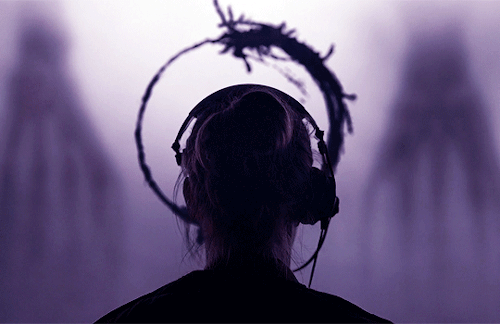Endless List Of Favourite Films: Arrival (2016).







Endless list of favourite films: Arrival (2016).
If you could see your whole life from start to finish, would you change things?
Maybe I’d say what I felt more often. I-I don’t know.
More Posts from Linguisticinspiration and Others
Languages of the world
Arabic (اَلْعَرَبِيَّةُ)
Basic facts
Number of native speakers: 310 million
Official language: Algeria, Bahrain, Comoros, Chad, Djibouti, Egypt, Iraq, Jordan, Kuwait, Lebanon, Libya, Mauritania, Morocco, Oman, (Palestine), Qatar, Saudi Arabia, Somalia, Sudan, Syria, Tanzania (Zanzibar), Tunisia, United Arab Emirates, Yemen, (Western Sahara), African Union, Arab League, Organization of Islamic Cooperation, United Nations
Recognized minority language: Brunei, Cyprus, Eritrea, Indonesia, Israel, Mali, Niger, Pakistan, Senegal, South Africa, South Sudan, Spain (Ceuta, Melilla)
Language of diaspora: Argentina, Australia, Belgium, Brazil, Canada, Chile, Colombia, Denmark, Ecuador, El Salvador, France, Germany, Honduras, Iran, Israel, Italy, Mexico, Netherlands, Sweden, Turkey, United Kingdom, United States, Venezuela
Script: Arabic, 28 letters
Grammatical cases: 3
Linguistic typology: fusional, SVO/VSO
Language family: Afro-Asiatic, Semitic, West Semitic, Central Semitic, North Arabian
Number of dialects: 9 main groups
History
1st millennium BCE-7th century CE - Old Arabic
512 - earliest document in Arabic
7th-9th centuries - Classical Arabic
11th century - creation of the present form (Naskh) of the script
19th-20th centuries - Nahda (Arab Renaissance)
Writing system and pronunciation
These are the letters that make up the script: ي و ه ن م ل ك ق ف غ ع ظ ط ض ص ش س ز ر ذ د خ ح ج ث ت ب ا.
Both printed and written Arabic are cursive, as most letters within a word are connected to the adjacent ones. Therefore, each letter can have four different forms depending on its position in a word.
Diacritics are used only in the Qur’an, religious texts, classical poetry, children’s books, and textbooks for learners.
Words cannot begin with a vowel, so initial vowels are always preceded by a glottal stop.
Grammar
Nouns have two genders (masculine and feminine), three numbers (singular, dual, and plural), and three cases (nominative, genitive, and accusative). They are also marked for definiteness and indefiniteness.
Arabic has a root-and-pattern morphology: a root consists of a set of consonants (usually three), which are fitted into a discontinuous pattern to form words.
Verbs are conjugated for tense, mood (indicative, imperative, subjunctive, and jussive), person, number, and gender. There are two major paradigms (past and non-past), which represent a combination of tense and aspect.
Dialects
Standard Arabic can be divided into Classical Arabic and Modern Standard Arabic (MSA). The first one is the language found in the Qur’an, while MSA is used in academia, print and mass media, and legislation. The grammar described in this post is that of MSA.
Spoken Arabic can be divided into nine main dialect groups: North African Arabic, spoken in Algeria, Libya, Morocco, and Tunisia; Hassaniya Arabic in Mauritania; Egyptian Arabic; Levantine Arabic, spoken in Jordan, Lebanon, Palestine, and Syria; Iraqi Arabic; Gulf Arabic, spoken in Bahrain, Kuwait, Oman, Qatar, and the UAE; Hejazi Arabic in western Saudi Arabia; Najdi Arabic in central Saudi Arabia, and Yemeni Arabic in Yemen and southwestern Saudi Arabia.
Differences between the dialects of the Middle East are small enough to enable speakers to understand each other. However, North African Arabic varies considerably from the rest of the dialects. Dialects mainly differ in phonology, grammar, and vocabulary.



arrival • blade runner: 2049 • dune
I want my life to revolve around dying to learn everything about science, politics, literature and music so that I can argue with people with extra intellect and extra delusion (that would be me)
How to Study like Rory Gilmore


A guide on romanticising school, studying like Rory Gilmore, and effective study methods. <3
Create a schedule. Rory is well-known for her strict schedule and commitment to sticking to it. To study like Rory, you should first make a timetable outlining your study time, reading time, and free time. Include breaks in your schedule and follow it as strictly as possible! :)
Lots of reading. Rory is an avid reader who always carries a book with her. Pick books that interest you and make reading a daily habit. Reading will help you develop your vocabulary and critical thinking skills.
Take notes. Rory is well-known for her detailed notes and ability to retain information. Take notes in class and annotate your books. Make your notes more structured by using highlighters and different colours, and review them daily. (goodnotes and notion are great for digital note taking!)
Make use of flashcards. Rory memorises stuff through flashcards. Flashcards can be used for vocabulary terms, key concepts, and other relevant information. Use them to test yourself and review regularly.
Define your goals. Rory has a set goal, what are you working towards? Make a vision board, write down your goals, visualize. This will help you stay motivated and not loose focus!
Stay organised. Rory is well-organised, and her study space is always neat and tidy. Keep your study area nice and free from distractions. Use folders, binders, and other tools to keep your notes and supplies organised, and make sure your workspace is clean and clutter-free.
Seek help when needed. Rory is not afraid to ask for help when she needs it. Don't hesitate to ask for help from your teachers, tutors, or classmates if you need it. To enhance your learning, ask questions and seek out extra resources such as textbooks, youtube videos, and study guides.
Atmosphere. Don't forget to make the atmosphere cosy, light a candle, prepare yourself a cup of tea or coffee, and wear a comfy sweater. Create an environment in which you can stay focused for hours. <3
Studying like Rory Gilmore requires dedication, discipline, and a love for learning. By following these tips and strategies, you can create a study routine that works for you and helps you achieve your academic goals.
As always, Please feel free to add more suggestions or questions in the comments!
✩‧₊*:・love ya ・:*₊‧✩









if you're a student at all, please take care of yourself. you don't need to compete with your classmates for who slept the least or who drank the most coffee. eat breakfast and go to sleep a little earlier. lay off studying for a night and do something nice for yourself. your body and brain will thank you.






We’re so bounded by time, by its order. But now I am not so sure I believe in beginnings and endings. Amy Adams as Louise Banks in Arrival (2016)





But now I’m not so sure I believe in beginnings and endings. There are days that define your story beyond your life. Like the day they arrived.
Arrival (2016) dir. Denis Villeneuve
American Sign Language in Supernatural









Sam + ASL
“I need language to live, like food—lexemes and morphemes and morsels of meaning nourish me with the knowledge that, yes, there is a word for this. Someone else has felt it before.”
-M.L Rio (If we were villains)
-
 littlejokerface liked this · 1 month ago
littlejokerface liked this · 1 month ago -
 napea reblogged this · 2 months ago
napea reblogged this · 2 months ago -
 napea liked this · 2 months ago
napea liked this · 2 months ago -
 furioas liked this · 4 months ago
furioas liked this · 4 months ago -
 crimezi reblogged this · 7 months ago
crimezi reblogged this · 7 months ago -
 capriiquarius reblogged this · 8 months ago
capriiquarius reblogged this · 8 months ago -
 undyinglantern reblogged this · 9 months ago
undyinglantern reblogged this · 9 months ago -
 miawinters reblogged this · 9 months ago
miawinters reblogged this · 9 months ago -
 miawinters liked this · 10 months ago
miawinters liked this · 10 months ago -
 dykesantos reblogged this · 1 year ago
dykesantos reblogged this · 1 year ago -
 dykesantos liked this · 1 year ago
dykesantos liked this · 1 year ago -
 vrpi liked this · 1 year ago
vrpi liked this · 1 year ago -
 un-amorost liked this · 1 year ago
un-amorost liked this · 1 year ago -
 imaginationfever13 liked this · 1 year ago
imaginationfever13 liked this · 1 year ago -
 desertpower reblogged this · 1 year ago
desertpower reblogged this · 1 year ago -
 dandelionjack reblogged this · 1 year ago
dandelionjack reblogged this · 1 year ago -
 dandelionjack liked this · 1 year ago
dandelionjack liked this · 1 year ago -
 tater-tots-last-of-the-romanovs liked this · 1 year ago
tater-tots-last-of-the-romanovs liked this · 1 year ago -
 here-be-misfit reblogged this · 1 year ago
here-be-misfit reblogged this · 1 year ago -
 here-be-misfit liked this · 1 year ago
here-be-misfit liked this · 1 year ago -
 twoheartsoneclara reblogged this · 1 year ago
twoheartsoneclara reblogged this · 1 year ago -
 impossible-woman reblogged this · 1 year ago
impossible-woman reblogged this · 1 year ago -
 tenrose reblogged this · 1 year ago
tenrose reblogged this · 1 year ago -
 tenrose liked this · 1 year ago
tenrose liked this · 1 year ago -
 aroacedean reblogged this · 1 year ago
aroacedean reblogged this · 1 year ago -
 aroacedean liked this · 1 year ago
aroacedean liked this · 1 year ago -
 sssssssim reblogged this · 1 year ago
sssssssim reblogged this · 1 year ago -
 devaneiossuspensos reblogged this · 1 year ago
devaneiossuspensos reblogged this · 1 year ago -
 munbunelle reblogged this · 1 year ago
munbunelle reblogged this · 1 year ago -
 chaos-monkeyy liked this · 1 year ago
chaos-monkeyy liked this · 1 year ago -
 d--dandelions reblogged this · 1 year ago
d--dandelions reblogged this · 1 year ago -
 curiouswildi liked this · 1 year ago
curiouswildi liked this · 1 year ago -
 marshmallowmcgonagall reblogged this · 1 year ago
marshmallowmcgonagall reblogged this · 1 year ago -
 whatevereveramen42 liked this · 2 years ago
whatevereveramen42 liked this · 2 years ago -
 marshmallowmcgonagall liked this · 2 years ago
marshmallowmcgonagall liked this · 2 years ago -
 unstoppable95fan liked this · 2 years ago
unstoppable95fan liked this · 2 years ago -
 sssssssim reblogged this · 2 years ago
sssssssim reblogged this · 2 years ago -
 hailodinson reblogged this · 2 years ago
hailodinson reblogged this · 2 years ago -
 hailodinson liked this · 2 years ago
hailodinson liked this · 2 years ago -
 reunionandthen reblogged this · 3 years ago
reunionandthen reblogged this · 3 years ago -
 superholymacaroni reblogged this · 3 years ago
superholymacaroni reblogged this · 3 years ago -
 superholymacaroni liked this · 3 years ago
superholymacaroni liked this · 3 years ago -
 theangelsandthephonebox reblogged this · 3 years ago
theangelsandthephonebox reblogged this · 3 years ago -
 jake-amy liked this · 3 years ago
jake-amy liked this · 3 years ago -
 azarovas reblogged this · 3 years ago
azarovas reblogged this · 3 years ago -
 silviaprt reblogged this · 3 years ago
silviaprt reblogged this · 3 years ago -
 silviaprt liked this · 3 years ago
silviaprt liked this · 3 years ago -
 mwik23 liked this · 3 years ago
mwik23 liked this · 3 years ago -
 honey-lets-fucking-run liked this · 3 years ago
honey-lets-fucking-run liked this · 3 years ago

Inspiration for a future linguist and literature professor
192 posts